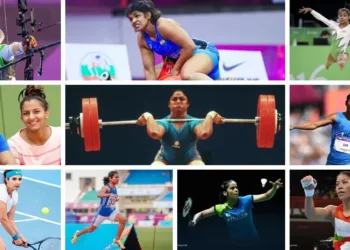In the ever-evolving landscape of K-pop, individual achievements often intertwine with group success, creating a complex tapestry of accolades and expectations. BTS Jungkook, a powerhouse in his own right, recently hit a remarkable milestone on Spotify, securing his place in the platform’s prestigious One Billion Streams club. However, what should have been a moment of pure celebration has ignited a passionate debate among fans and industry observers alike.
On March 30, 2025, BIGHIT Entertainment proudly shared Jungkook’s latest Spotify plaques for his hits “Standing Next to You” and “Left and Right.” The latter, a collaboration with Charlie Puth, marked Jungkook’s second entry into Spotify’s billion-stream echelon, following the massive success of “Seven (feat. Latto)” in 2023. This achievement solidifies Jungkook’s status as the first Asian solo artist to have three songs surpass the billion-stream mark on the platform.
Table of Contents
Yet, amidst the chorus of congratulations, a discordant note emerged. Eagle-eyed fans noticed that the plaque for “Left and Right” bore not just Jungkook’s name, but also credited BTS as a group. This seemingly small detail has sparked a fierce debate about individual recognition, artistic integrity, and the complex dynamics of K-pop’s group-oriented industry. As we delve into this controversy, we’ll explore the implications for Jungkook, BTS, and the broader conversation about credit and recognition in the music industry.

Solo Spotlight or Group Glory? The Dilemma of BTS K-pop Individual Achievements
The revelation that BTS was credited on Jungkook’s Spotify plaque for “Left and Right” has opened a Pandora’s box of questions about recognition in K-pop. Fans, known for their unwavering support and attention to detail, quickly voiced their concerns across social media platforms. The core of their argument? That Jungkook’s solo work should be recognized as such, without the automatic inclusion of his group’s name.
This isn’t the first time such an issue has arisen. Fans pointed out a similar occurrence with Jungkook’s FIFA World Cup 2022 track, “Dreamers,” which was also credited to BTS on Spotify. The repetition of this practice has only fueled the flames of discontent among Jungkook’s supporters.
The controversy touches on a sensitive nerve in the K-pop industry, where the line between individual and group identity is often blurred. Fans argue that crediting BTS for Jungkook’s solo work undermines his personal achievements and artistic growth. One fan eloquently summed up the sentiment on social media: “It’s Jungkook who works hard. Jungkook was the one who recorded the song, not the group. The credit goes to Jungkook only. This is so disrespectful. He deserves respect.”
This situation raises important questions about the nature of success and recognition in the music industry, particularly in the context of groups like BTS, where individual members have begun to carve out successful solo careers. Should a group’s name be attached to every project its members undertake? Or should there be a clear delineation between group and solo achievements?
The debate extends beyond mere recognition to financial implications as well. Some fans expressed concern about the potential distribution of royalties, questioning whether it’s fair for non-participating members to benefit from a solo project. “I seriously can’t understand how the six members are making money from Left and Right and Dreamers when they have zero contributions in either song,” one fan commented, highlighting the ethical considerations at play.

HYBE and BIGHIT Entertainment, the powerhouses behind BTS, have yet to officially address the controversy. Their silence has only intensified fan speculation and calls for transparency. Many are urging the companies to “untag” BTS from Jungkook’s solo works, arguing that this would be a step towards fairness and respect for individual artistry.
Despite the controversy, it’s important to note Jungkook’s remarkable achievements. “Left and Right,” released on June 24, 2022, has not only amassed over a billion streams but also peaked at No. 22 on the Billboard Hot 100 and reached No. 5 on the Billboard Global 200. The track’s success, along with that of “Seven” and “Standing Next to You,” cements Jungkook’s position as a formidable solo artist in his own right.
Beyond the Plaque: What Jungkook’s Spotify Success Means for BTS K-pop Future
The controversy surrounding Jungkook’s Spotify achievements goes beyond a simple question of credit. It touches on the evolving nature of K-pop, where individual members of successful groups are increasingly making names for themselves as solo artists. This trend is reshaping the industry, challenging traditional notions of group dynamics and individual recognition.
Jungkook’s success as a solo artist, exemplified by his three billion-stream hits on Spotify, is a testament to his immense talent and global appeal. It also highlights the potential for K-pop idols to transcend their group identities and establish themselves as independent artists on the world stage. This evolution could pave the way for a more diverse and dynamic K-pop landscape, where artists can freely explore both group and solo projects without one overshadowing the other.
As the industry grapples with these changes, it’s clear that new standards and practices may need to be established to ensure fair recognition of both individual and group achievements. The resolution of this controversy could set important precedents for how solo work is credited, marketed, and celebrated within the K-pop ecosystem.

Ultimately, while the debate continues, one fact remains undisputed: Jungkook’s musical prowess and global popularity are on an upward trajectory. As he completes his military service and prepares for his return to the music scene in 2025, fans and industry watchers alike are eager to see how his solo career will continue to evolve, and how the K-pop industry will adapt to celebrate individual successes within the context of group dynamics.
As the K-pop industry continues to evolve, with more group members embarking on solo ventures, this controversy may serve as a catalyst for important discussions about credit, recognition, and the balance between group identity and individual artistry. The resolution of this issue could set a precedent for how solo achievements are recognized and celebrated within the context of group-oriented K-pop culture.
While fans eagerly await an official response from HYBE or BIGHIT Entertainment, one thing remains clear: Jungkook’s talent and hard work have propelled him to new heights in the global music scene. As he continues to serve in the military, set to be discharged in June 2025, the music world watches with bated breath, anticipating his next moves and the potential evolution of how solo achievements are recognized in the ever-changing landscape of K-pop.
BTS Jungkook’s Billion-Stream Hits on Spotify
| Song Title | Release Date | Billion Streams Achieved | Collaborator |
|---|---|---|---|
| Seven | July 14, 2023 | September 2023 | Latto |
| Left and Right | June 24, 2022 | September 2024 | Charlie Puth |
| Standing Next to You | November 3, 2023 | November 2024 | N/A |
My Dearest Nemesis Finale: Workplace Rivals to Lovers in Heartwarming K-Drama Conclusion
FAQs
Q: Why are fans upset about BTS being credited on Jungkook’s Spotify plaque for “Left and Right”?
A: Fans believe that since “Left and Right” is Jungkook’s solo collaboration with Charlie Puth, crediting BTS as a group undermines Jungkook’s individual achievement and artistic identity.
Q: Has this happened before with Jungkook’s solo work?
A: Yes, fans have pointed out that a similar situation occurred with Jungkook’s FIFA World Cup 2022 track “Dreamers,” which was also credited to BTS on Spotify.








